COVID-19
Supreme Court will not hear case about government’s violation of rights and freedoms
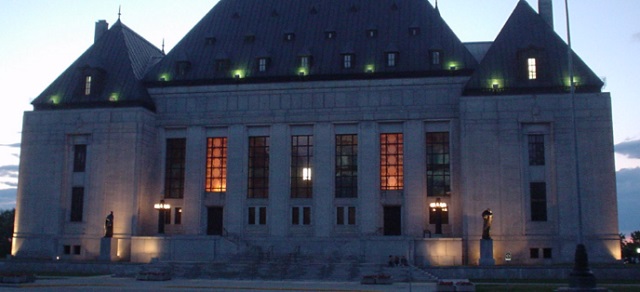
News release from the Justice Centre for Constitutional Freedoms
The Justice Centre for Constitutional Freedoms is disappointed that the Supreme Court of Canada has decided not to hear the appeal of the challenge to Manitoba’s lockdown restrictions. The decision was announced on Thursday, March 14, 2024.
The Leave to Appeal application, under the name Gateway Bible Baptist Church et al. v. Manitoba et al., was filed on September 18, 2023. Five Manitoba churches, a pastor and a deacon asked the Supreme Court of Canada to hear their appeal of the lower courts’ dismissal of their constitutional challenge to closures of churches and restrictions on outdoor gatherings during Covid lockdowns in late 2020 and 2021. Included in the application was protester Ross MacKay, who had been ticketed and who was seeking to appeal the lower courts’ dismissal of his constitutional challenge to the outdoor gathering limits.
Through public health orders, Manitoba had closed churches while permitting businesses to continue to operate. Taxis, in-person university classes, film and tv productions, law offices, and liquor stores were allowed to remain open. The Winnipeg Jets could meet and train indoors with their extended crew, and summer Olympic competitors were allowed to train indoors. Outdoor gatherings were reduced to no more than five people, while at the same time hundreds of people could legally gather indoors at big box stores.
The initial case was heard in May 2021 before the Manitoba Court of King’s Bench. The province did not produce any evidence that Covid spreads outdoors, or that outdoor gatherings were risky activities. That hearing did produce a significant admission from a government expert witness, Chief Microbiologist and Laboratory Specialist Dr. Jared Bullard, who, under questioning from Justice Centre lawyers, admitted that 56 percent of positive Covid cases were not infectious. The hearing was also notable for the Applicants’ expert report and testimony from world-renowned Stanford Professor, epidemiologist Dr. Jay Bhattacharya, co-author of The Great Barrington Declaration. Dr. Bhattacharya has moved on to even greater international fame as one of the litigants in a lawsuit, Missouri v. Biden, against the U.S federal government for medical censorship uncovered in The Twitter Files investigation.
The Manitoba Court of King’s Bench ruled that the government’s public health officials should not be “second guessed” and that the government need not meet a high threshold of providing persuasive evidence to demonstrably justify that violations of the Canadian Charter of Rights and Freedoms were reasonable. The Manitoba Court of King’s Bench did not order the unsuccessful Applicants to pay court costs, finding there to be significant public interest in having this case adjudicated.
In December 2022, the Applicants appealed. The appeal was dismissed by the Manitoba Court of Appeal in June 2023.
In the Application for Leave to Appeal to the Supreme Court of Canada, lawyers provided by the Justice Centre argued that the case raised issues of national importance. For instance:
- How are constitutionally protected activities to be juridically measured against comparable non-constitutionally protected activities? What is the proper approach to the minimal impairment stage of the Oakes analysis with respect to public health orders that fully prohibit Charter-protected activities (e.g. In- person religious worship) while permitting comparable non-Charter-protected activities (e.g. In-person university classes, film and television productions, indoor team-training for the Winnipeg Jets, etc.).
- Does reliance on the “precautionary principle” satisfy the state’s onus under Charter section 1 to provide “cogent and persuasive” evidence to justify Charter-infringing measures?
The Applicants’ legal team believed the case was critically important, as it could have served as guidance for governments in crafting public health measures on efforts needed to accommodate Charter-protected rights and freedoms.
Allison Pejovic, lawyer for the Applicants, stated, “Our clients are disappointed in the Supreme Court’s decision not to hear their appeal. It was past time to have a conversation with Canada’s highest court about whether Charter-protected rights such as rights to worship and assemble ought to be prioritized over economic interests, such as ensuring that the Winnipeg Jets could practice indoors and that movie productions could continue. It was also critical to hear from the Court on the importance of respecting the Charter during a declared ’emergency’. Governments urgently needed the Supreme Court of Canada’s guidance as to the degree to which they should accommodate Charter rights during a future pandemic or other emergency proclaimed by government. Leaving that issue undecided at the highest level is a grave injustice for all Canadians.”
COVID-19
New book edited by Naomi Wolf exposes Pfizer’s ‘crimes against humanity’
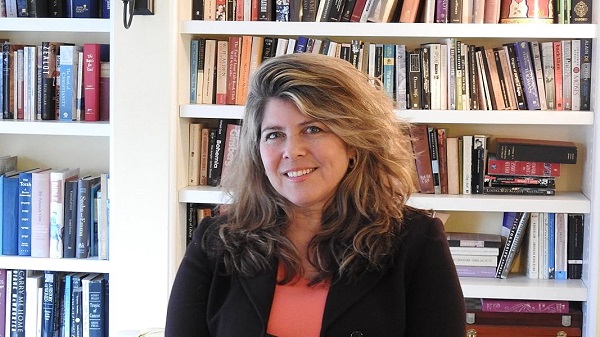
From LifeSiteNews
By John Leake
‘The Pfizer Papers: Pfizer’s Crimes Against Humanity’ strikes me as one of the most impressive works of investigative scholarship in history. I strongly recommend the book to everyone in the world who is interested in truth and justice.
When I was born, my maternal great grandmother gave me a generous gift of Pfizer stock. She had been impressed by Pfizer’s key role in discovering how to mass produce penicillin during World War II (in which her son was killed in action). Eighteen years later her gift paid for my university education. And then, in 1998, Pfizer received FDA approval to sell Viagra.
Pfizer initially developed the drug to treat high blood pressure and angina pectoris. However, as Pfizer’s researchers discovered in clinical trials, the drug was better at inducing erections than managing angina. And so, the company repurposed the drug for erectile dysfunction and launched a massive, global PR and marketing campaign – including seeking moral approval from Pope John Paul II and contracting the war hero and 1996 presidential candidate Bob Dole to be the brand’s poster gentleman – that succeeded in making Viagra a blockbuster.
So, I learned why pharmaceutical companies seek to develop blockbuster drugs with fanatical zeal. Formulating a safe and effective new medicine to address a large, unmet need is very difficult and expensive. Performing clinical trials and obtaining FDA-approval is an arduous process that normally takes several years. Thus, if an opportunity for a new blockbuster presents itself, a big drug company like Pfizer will go to extreme lengths to seize it.
Three years after the release of Viagra, I learned that Pfizer was not the respectable company my great grandmother had believed it to be. I arrived at this realization through my interest in British spy novels. In 2001 I lived in Vienna, around the corner from the Burgkino (Burg Cinema) which still played the 1949 film noir classic The Third Man on its big screen every weekend. I spent many a dreary winter Sunday afternoon watching the film. Based on the novella and screenplay by Graham Greene, The Third Man is a crime story about Harry Lime – an American running a medical charity in Vienna, who makes a killing selling penicillin on the bombed out, impoverished city’s black market. To increase his profits, he cuts the drug with other substances, thereby destroying its efficacy and causing the patients (including children) to die horribly from their infections.
In the film’s most iconic scene, the good guy (played by Joseph Cotton) meets his old friend Harry Lime (played by Orson Welles) on the Giant Ferris wheel in the Vienna Prater amusement park and tries to appeal to his conscience. At the wheel’s apex, the charismatic Harry opens the door, points down to people walking on the ground below, and says:
Look down there. Would you really feel any pity if one of those dots stopped moving forever? If I offered you twenty thousand pounds for every dot that stopped, would you really, old man, tell me to keep my money, or would you calculate how many dots you could afford to spare? Free of income tax, old man. Free of income tax. … Nobody thinks in terms of human beings. Governments don’t, why should we? They talk about the people and the proletariat; I talk about the suckers and the mugs. It’s the same thing. They have their five-year plans, and so have I.
I sensed that Graham Greene might have based the story on something he’d witnessed or heard about. Doing some research, I learned that Harry Lime was probably based on the British spy Harold “Kim” Philby, with whom Greene worked in British intelligence during World War II. Greene, it seems, discovered that Philby was a Soviet double agent long before he was exposed as such in 1963. Instead of ratting out his friend, he kept it to himself and left the intelligence service in 1944. Several pieces of evidence suggest that when he wrote The Third Man a few years later, he based it on his conflicted friendship with Philby.
John le Carré was also fascinated by Graham Greene and Kim Philby, and his thriller Tinker, Tailor, Soldier, Spy – one of my all-time favorites – was inspired by the Philby story. His novel The Constant Gardener was published in 2001, and I read it with great interest. The story wasn’t set in Cold War Europe, but in Kenya, where a British diplomat’s wife is brutally raped and murdered. Upon closer examination, the diplomat realizes that she was about to reveal a horrifying crime committed by a pharmaceutical company, which murdered her in order to prevent the exposure.
The novel’s plot was reminiscent of a controversial drug trial performed by Pfizer in Kano, Nigeria in 1996 during a meningococcal outbreak. For the trial of its new antibiotic, trovafloxacin, Pfizer gave 100 children this new drug. The control group of 100 other children received the standard anti-meningitis treatment at the time – a drug called ceftriaxone. However, for the control group, Pfizer administered a substantially lower dose of ceftriaxone than the drug’s FDA-approved standard.
When the reduced dosing in the control group was discovered, it raised the suspicion that Pfizer did this in order to skew the trial in favor of its new drug. Five of the children who received trovafloxacin died, while six who received the reduced dose of ceftriaxone died. Other children apparently suffered grave injuries from the administration of the experimental antibiotic without their informed consent. The investigation and litigation that ensued was the stuff of a thriller, involving private investigators, bribery, blackmail attempts, and disappearing records. Thirteen years later, in 2009, Pfizer settled out of court with the plaintiffs.
In his author’s note, le Carré claimed that nobody and no corporation in the novel was based on an actual person or corporation in the real world.
But I can tell you this. As my journey through the pharmaceutical jungle progressed, I came to realize that, by comparison with the reality, my story was as tame as a holiday postcard.
In 2009, the same year that Pfizer settled with the trovafloxacin plaintiffs, the New York Times reported that a U.S. federal judge assessed Pfizer with the “largest health care fraud settlement and the largest criminal fine of any kind ever” for its illegal marketing of Bextra and three other drugs. The U.S. Department of Justice was unequivocal in characterizing Pfizer’s officers as guilty of grave criminal conduct at the expense of the American public.
As I have long known all of the above, I wasn’t surprised by the gross criminal conduct revealed in The Pfizer Papers: Pfizer’s Crimes Against Humanity, edited by Naomi Wolf with Amy Kelly and a foreword by Stephen K. Bannon. The 366-page hardcover book – beautifully published by War Room Books, an imprint of Skyhorse Publishing – is a meticulous analysis of Pfizer documents the FDA was forced to release as a result of Aaron Siri’s lawsuit.
The book strikes me as one of the most impressive works of investigative scholarship in history. As Dr. Peter McCullough described it in his praise (printed on the book’s first page):
This is a comprehensive, organized, and compelling presentation of vaccine safety data that has accumulated after mass and indiscriminate administration of the Pfizer mRNA COVID-19 vaccines. Sadly, a large group of vaccine recipients have become injured, disabled, and many have died after the ill-advised injections. The data with histopathological evaluation at necropsy and autopsy with expert analysis is presented so you can evaluate it for yourself. Never before has there been a class of products with this wide range and extended duration of injury to the recipient.
On Saturday, November 16, I attended the official launch of this magisterial work of what I believe falls squarely within the true crime genre of literature. It was a great honor for me to attend the gathering with the book’s editors and authors. It seemed to me that I was witnessing history being made.
I strongly recommend the book to everyone in the world who is interested in truth and justice. The book should be required reading by everyone in the legislative and executive branches of the U.S. government, especially President-elect Trump’s staff.
Please purchase your copy today by clicking here. Producing the book was a Herculean effort. Never before have a book’s authors and publisher been so deserving of compensation for their work. I agree with Dr. Peter Breggin’s sentiment that they, as well as editor Naomi Wolf and project director Amy Kelly, “should get the Nobel Prize for medicine and the praises of a grateful humanity.”
Reprinted with permission from Courageous Discourse.
COVID-19
Study showing ‘high likelihood’ of link between COVID vaccines and death republished in peer-reviewed journal
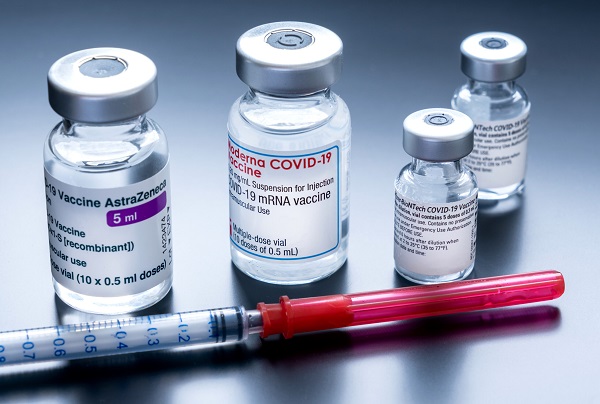
From LifeSiteNews
By Dr. Suzanne Burdick, The Defender
The largest COVID-19 vaccine autopsy study to date has been republished in a peer-reviewed journal after twice being censored. The study’s lead author said it provides ‘robust evidence’ that the vaccines can cause death, meeting the FDA’s criteria for ‘an immediate market withdrawal.’
The largest COVID-19 vaccine autopsy study to date has been republished in a peer-reviewed journal — after twice being censored, according to Nicolas Hulscher, the paper’s lead author and an epidemiologist at the McCullough Foundation.
Science, Public Health Policy and the Law on Nov. 17 published the study, which had been previously withdrawn from Preprints with The Lancet and Forensic Science International.
Hulscher told The Defender the study’s republication signals a “pivotal victory for transparency and accountability in science.” It also marks “a significant setback” for actors in the biopharmaceutical complex and “their Academic Publishing Cartel,” Hulscher said.
Hulscher’s co-authors include Dr. Harvey Risch, Dr. Peter A. McCullough and Dr. William Makis.
Hulscher told The Defender the study provides “robust evidence that COVID-19 vaccines can cause death. This means that the FDA’s [U.S. Food and Drug Administration] criteria for a Class I recall have been fulfilled, warranting an immediate market withdrawal.”
The FDA defines a Class I product recall as “a situation in which there is a reasonable probability that the use of or exposure to a violative product will cause serious adverse health consequences or death.”
Risch, professor emeritus of epidemiology at the Yale School of Public Health, told The Defender that the COVID-19 vaccine spike protein “can stay around in some people and continue to do inflammatory damage in any site where it gets to through the bloodstream.”
In ‘striking act of censorship’ publishers withdraw study, shut down debate
The study’s publication in Science, Public Health Policy and the Law is the latest twist in an ongoing saga as the authors have tried to get their research out to the public and scientific community, Hulscher wrote on Substack.
The study results were first made public on July 5, 2023, as a preprint with The Lancet on SSRN, an open-access research platform.
However, Preprints with The Lancet removed the study from the server within 24 hours, posting a statement that the study’s conclusions were “not supported by the study methodology,” The Daily Sceptic reported.
McCullough told The Epoch Times that the study was experiencing “hundreds of reviews per minute” before its removal.
Preprint servers offer a place for the public to view scientific reports and papers while they undergo peer review, making scientific findings available immediately and for free and opening them up to broader public debate.
The authors subsequently posted on the Zenodo preprint server, while the review underwent peer review at Forensic Science International. It was downloaded over 130,000 times.
On June 21, 2024, after successful peer review, Forensic Science International published the study.
Within weeks, the study became the top trending research paper worldwide across all subject areas, according to the Observatory of International Research, Hulscher recalled.

“Unfortunately,” Hulscher wrote on Substack, “in a striking act of censorship, Elsevier and Forensic Science International withdrew the article on August 2nd, 2024 in flagrant violation of their own withdrawal policy and COPE guidelines.”
He said they “left no traces behind, completely wiping our paper from the webpage.”
Elsevier and Forensic Science International said that “members of the scientific community” — who remained anonymous, Hulscher pointed out — cited numerous concerns about the study, including inappropriate citation references, inappropriate methodological design and a lack of factual support for its conclusions.
READ: Slovak COVID commissioner calls pandemic a ‘fabricated operation,’ calls for end to vaccines
The concerns were “unfounded,” Hulscher wrote. The study authors wrote a rebuttal defending their study and submitted a revised manuscript. However, Elsevier and Forensic Science International rejected the revised manuscript.
Hulscher noted that Elsevier and Forensic Science International “failed to follow the proper scientific discourse method of allowing debate in Letters to the Editor.” Instead, they shut down the possibility of debate by censoring the study.
“This type of academic censorship poses a serious threat to the progress of scientific discovery,” he said.
73.9% of deaths reviewed by authors linked to COVID vaccines
As The Defender previously reported, the study authors did a systematic review of studies on autopsy findings following COVID-19 vaccination.
They first searched PubMed and ScienceDirect for all published autopsy and necropsy — another word for autopsy — reports related to COVID-19 vaccination in which the death occurred after vaccination.
They screened out 562 duplicate studies among the 678 studies initially identified in their search. Other papers were removed because they lacked information about vaccination status.
Ultimately, they evaluated 44 papers containing 325 autopsies and one necropsy case. Three physicians independently reviewed each case and adjudicated whether or not the COVID-19 shot was the direct cause or contributed significantly to the death reported.
They found 240 of the deaths (73.9%) were found to be “directly due to or significantly contributed to by COVID-19 vaccination.” The mean age for death was 70.4 years old.
Primary causes of death included sudden cardiac death, which happened in 35% of cases, pulmonary embolism and myocardial infarction, which occurred in 12.5% and 12% of the cases respectively.
Other causes included vaccine-induced immune thrombotic thrombocytopenia, myocarditis,multisystem inflammatory syndrome and cerebral hemorrhage.
Most deaths occurred within a week of the last shot.
The authors concluded that because the deaths were highly consistent with the known mechanisms for COVID-19 vaccine injury, it was highly likely the deaths were causally linked to the vaccine.
They said the findings “amplify” existing concerns about the vaccines, including those related to vaccine-induced myocarditis and myocardial infarction and the effects of the spike protein more broadly.
They also said the studies have implications for unanticipated deaths among vaccinated people with no previous illness. “We can infer that in such cases, death may have been caused by COVID-19 vaccination,” they wrote.
READ: Peer-reviewed study finds over 1,000% rise in cardiac deaths after COVID-19 shots
The authors acknowledged some potential biases in the article.
First, they said, their conclusions from the autopsy findings are based on an evolving understanding of the vaccines, which are currently different from when the studies evaluated were published.
They also noted that systematic reviews have bias potential in general because of biases that may exist at the level of the individual papers and their acceptance into the peer-reviewed literature.
They said publication bias could have affected their results because the global push for mass vaccination has made investigators hesitant to report adverse events.
They also said their research did not account for confounding variables like concomitant illnesses, drug interactions and other factors that may have had a causal role in the reported deaths.
This article was originally published by The Defender – Children’s Health Defense’s News & Views Website under Creative Commons license CC BY-NC-ND 4.0. Please consider subscribing to The Defender or donating to Children’s Health Defense.
-

 C2C Journal1 day ago
C2C Journal1 day agoWhy the Trump Administration is Unlikely to Impose Import Tariffs on Canadian Oil and Natural Gas
-
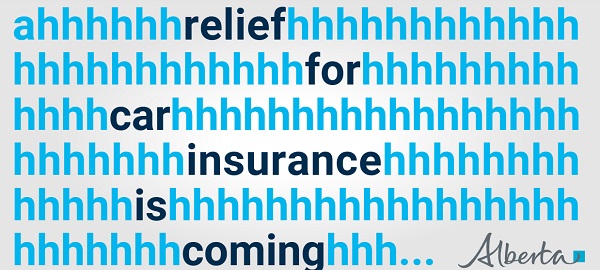
 Alberta1 day ago
Alberta1 day agoNew website to explain changes coming to your auto insurance
-
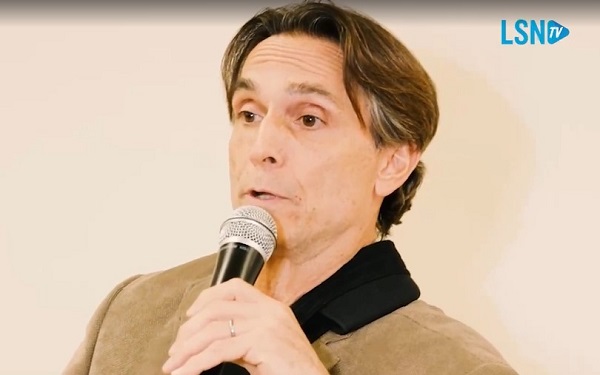
 COVID-191 day ago
COVID-191 day agoOntario court throws out Dr. Trozzi’s appeal after medical license revoked over COVID stance
-

 Alberta1 day ago
Alberta1 day agoProvince investing in support for financial literacy in schools
-
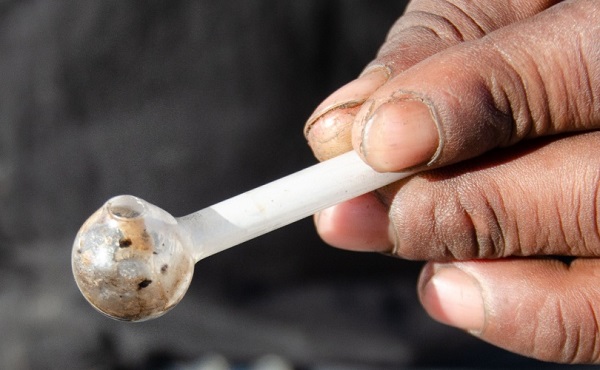
 Addictions1 day ago
Addictions1 day agoParliament votes for proposal recommending hard drug decriminalization
-
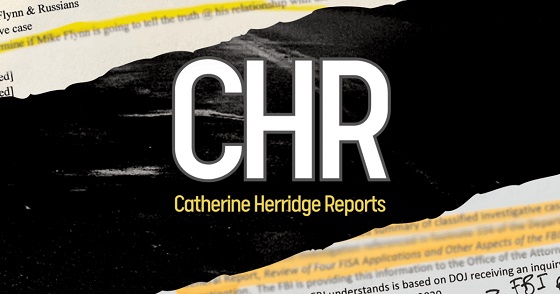
 Catherine Herridge2 days ago
Catherine Herridge2 days agoHow X And Joe Rogan Broke The Back of 60 Minutes
-

 Agriculture2 days ago
Agriculture2 days agoSaskatchewan potash vital for world food
-

 Alberta Sports Hall of Fame and Museum1 day ago
Alberta Sports Hall of Fame and Museum1 day agoAlberta Sports Hall of Fame announces Class of 2025







